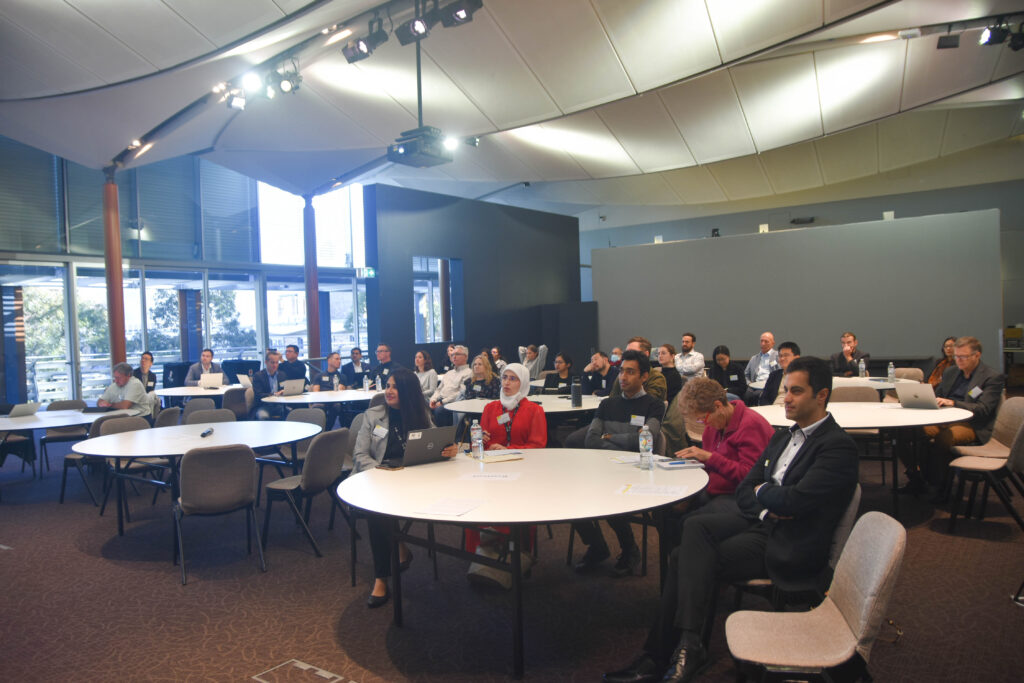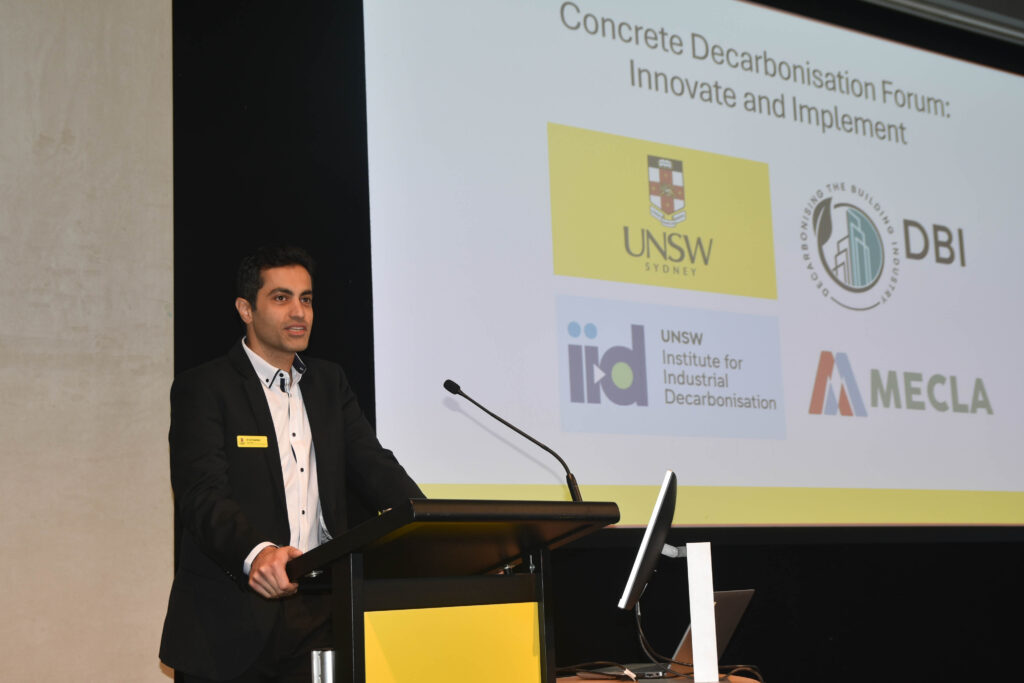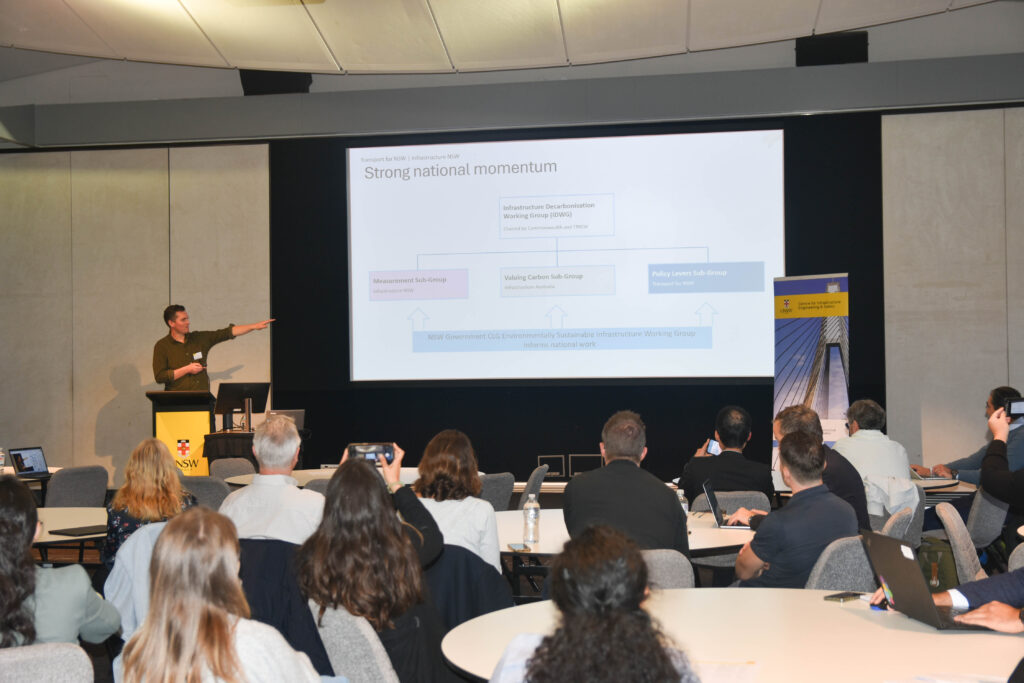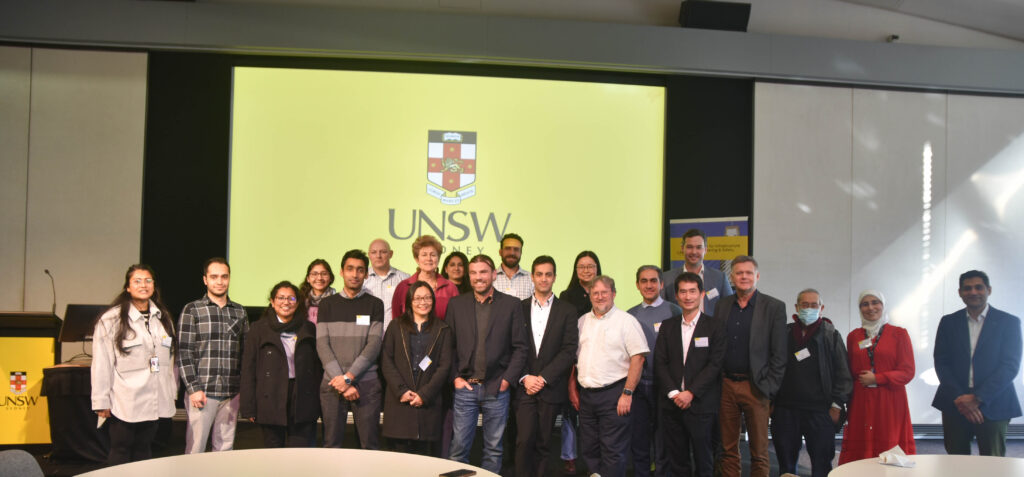Event date: June 28, 2024
The University of New South Wales hosted the Concrete Decarbonisation Forum on June 28, 2024, bringing together experts, policymakers, industry leaders, and innovators to discuss sustainable practices in concrete production. The event aimed to bridge gaps between stakeholders, promoting the development and adoption of low-carbon concrete through insightful presentations, engaging discussions, and networking sessions.

Presentations
The presentations at the forum covered a range of innovative strategies and initiatives aimed at reducing the carbon footprint of the concrete industry. Tuan Ngo and Behzad Rismanchi introduced the DBI initiative, highlighting global collaboration efforts. David Kelly discussed Transport for NSW’s Sustainable Infrastructure Program and its net-zero goals. Monica Richter emphasised corporate carbon budgets and Scope 3 emissions, while Evan Smith presented low-carbon concrete mixes and industry guidelines. Erin Miller shared Laing O’Rourke’s procurement strategies for achieving low-carbon targets. David Eyre outlined the Institute of Industrial Decarbonisation’s focus on clean technology and carbon accounting. Stephen Foster addressed the integration of low-carbon alternatives and SCMs, and Ali Kashani presented innovative approaches such as optimising concrete design and carbon capture technologies. Vivian Tam advocated for using recycled aggregates for environmental benefits, and Clare Tubolets detailed collaborative research programs for sustainable concrete solutions.
Check out the presentations here in more detail.

Round table discussions
Main topics covered during the roundtable discussions included:
- Guidelines and Standards: The need for established benchmarks to ensure compliance and performance expectations for decarbonisation technologies.
- Communication and Training: The importance of educating stakeholders about new technologies, addressing misconceptions, and bridging the skills gap.
- Risk Management: Addressing concerns about performance, cost, specifications, and time to reduce stakeholders’ hesitancy.
- Marketing and Promotion: Developing robust strategies to promote the benefits of decarbonisation technologies and increase stakeholder awareness.
- Mentality Shifts: Overcoming resistance to change rooted in traditional construction practices and mindsets.
Check out the round table discussions here in more detail.

Key takeaways
The forum underscored several critical points necessary for advancing the decarbonisation of the concrete sector:
- Collaboration: Essential for advancing low-carbon technologies through partnerships between universities, industry, and government.
- Policy and Standards: Clear guidelines and supportive policies are crucial for industry-wide adoption of sustainable practices.
- Education: Comprehensive training and communication strategies are needed to facilitate the effective use and integration of new technologies.
- Innovation: Continued research and development in low-carbon concrete and SCMs are vital for achieving substantial carbon reductions.
- Market Adoption: Overcoming barriers requires effective marketing strategies, financial incentives, and robust promotion of sustainable concrete solutions.
The forum underscored the importance of a multifaceted approach to decarbonising the concrete sector, highlighting the need for innovation, collaboration, and strong policy frameworks.

